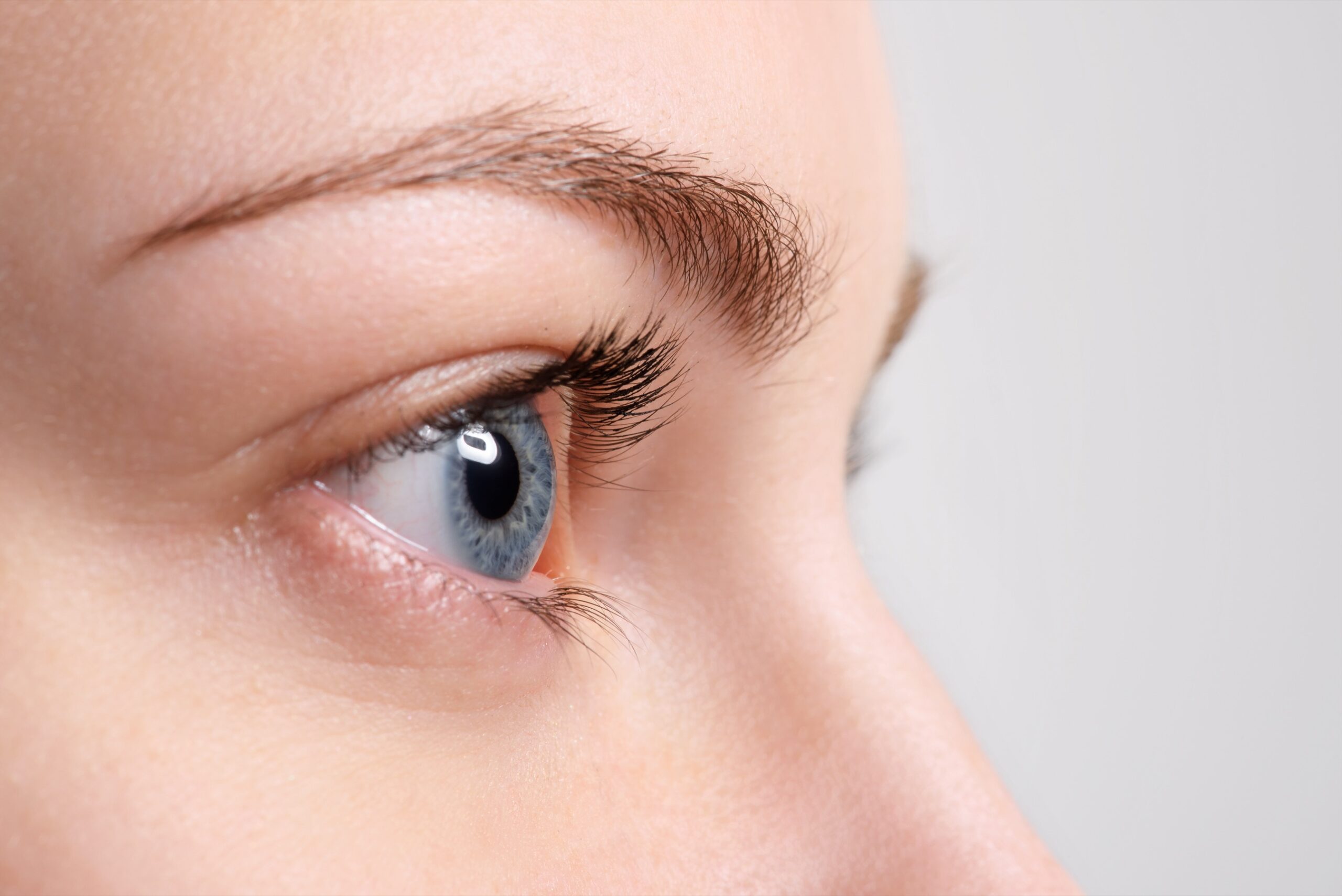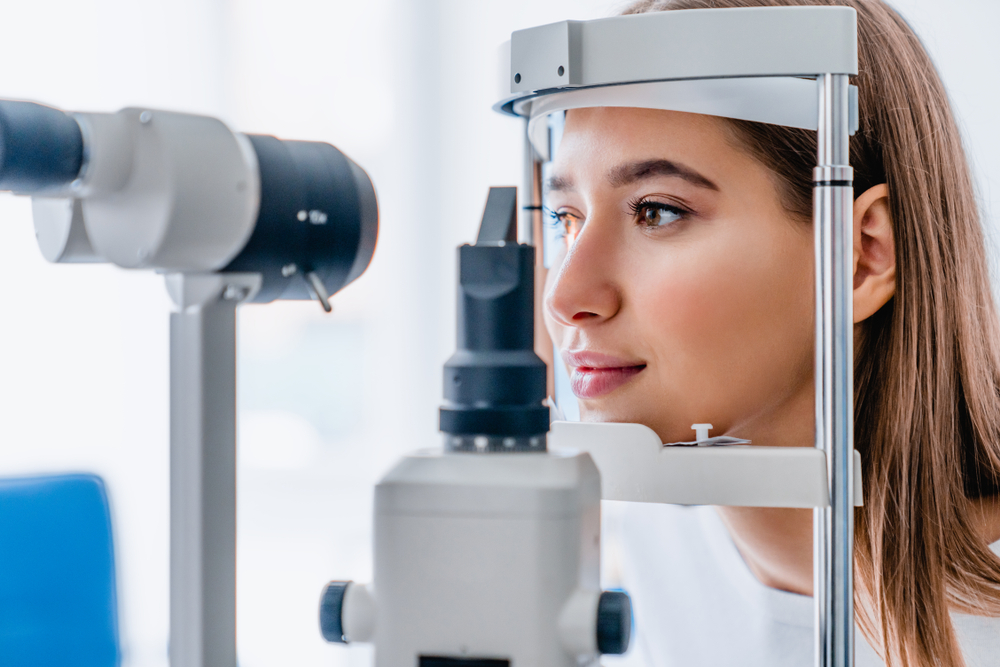The corneal specialists at Cavanaugh Eye Center have the experience and offer the latest technology necessary to treat a wide range of corneal diseases and injuries. Dr. Cavanaugh has the training, experience, and unsurpassed technology to provide you with optimal corneal surgery results. As a fellowship-trained cornea specialist, he has in-depth knowledge of corneal conditions.


The cornea is the clear front part of the eye that covers the iris and pupil. It helps focus light, providing most of the eye’s optical power. It also acts as a shield to protect the eye. If the cornea becomes damaged–whether from injury, disease, or a genetic condition–turn to the corneal specialists at Cavanaugh Eye Center for expert evaluation and care.

There are many causes of corneal disease and degeneration. If the cornea is damaged, it may become swollen or scarred, and its smoothness and clarity may be lost. Scars, swelling, or an irregular shape can cause the cornea to scatter or distort light, resulting in glare or blurred vision. Corneal diseases or injury can not only be uncomfortable, but they may also pose a threat to a patient’s ability to see. In some cases, prompt treatment of corneal conditions is essential to preserve vision.
Our experienced ophthalmologist use the latest in laser surgery technology to ensure you get the best care possible.
View All DoctorsA corneal abrasion is a scratch or scrape on the surface of your cornea. Scratches on your cornea can make it feel like something is stuck in your eye. They can make your eyes red, painful, watery and sensitive to light. Your eye doctor can help identify the best solution for fast healing, which may include antibiotic eye drops or ointment. Learn More About Corneal Scratches and Abrasions.
Corneal infections are often the result of injuries to the cornea such as scratches that allow bacteria or fungus to enter the cornea. Contact lens wearers are at higher risk of corneal infections. In most cases, corneal infections can be treated with antibacterial or antifungal eye drops or oral medications. This is normally a treatable condition, but severe corneal infections can threaten your eyesight and eye health and may require surgical treatment or a corneal transplant.
A corneal ulcer is a painful wound on the cornea that may be the result of scratches, injury, or poor contact lens care. In addition to pain, a corneal ulcer may cause decreased vision, eye redness, light sensitivity, swelling of the eyelids, or the sensation that there is something in the eye. This condition can progress to threaten vision and should be treated promptly by an ophthalmologist.
Fuchs’ endothelial corneal dystrophy is a condition that causes the cornea to swell and can lead to blurry vision, glare, or eye pain in severe cases. If Fuchs’ dystrophy progresses to a stage where vision is affected, DMEK corneal transplantation is highly effective in restoring excellent long-term vision.
Keratoconus is a condition characterized by a cornea that becomes irregularly shaped (more conelike than domelike). Common symptoms include ghost images, halos, sensitivity to light and blurred vision. This can be a progressive condition. In early stages, keratoconus can be treated with special contact lenses. If progressive bulging of the cornea occurs, a procedure called Corneal Crosslinking can be effective. In advanced cases, corneal transplantation may be needed.
A pterygium is a growth on the outer layer of the eye, called the conjunctiva. Most symptoms of a pterygium, including dry eye, redness, burning or itching, can be treated with over-the-counter or prescription eye drops. If a pterygium grows large enough to obstruct vision, surgery may be necessary.
We tailor treatment to the individual disease and patient. The underlying disease and contributing problems must be addressed. Depending on the condition, corneal procedures might include medications, laser treatment, corneal transplantation, or other surgery. We often determine treatment modalities by the corneal layer(s) involved.
Corneal Cross-Linking, or CXL, aims to halt the progression of Keratoconus and prevent the need for more invasive treatment options. It utilizes a vitamin B2 solution and UV light that, when applied to the cornea, help strengthen the collagen fibers by cross-linking them together.
Learn More About Corneal Cross-linking.
Penetrating Keratoplasty (PK) is a full-thickness corneal transplant. It’s best for conditions that involve clouding throughout the entire cornea or for conditions such as keratoconus, where the cornea’s shape is severely distorted. In this surgery, all five layers of the cornea are removed and replaced with a clear donor cornea.
Learn More About Full-Thickness Corneal Transplants.
DSAEK replaces the posterior or inner layers of the cornea and helps selected patients with Fuchs’ dystrophy or other disorders involving the endothelial or inner layer only. Learn More About DSAEK Surgery.
Phototherapeutic Keratectomy (PTK) is a procedure that uses an excimer laser to remove haziness and irregularities from the cornea. Learn More About PTK.
Superficial Keratectomy (SK) removes scars and/or defective surface cells from the cornea so that new healthy cells can replace them. Learn More About SK.
Amniotic membranes are rich with fetal stem cells and contain growth factors that promote wound healing on the surface of the eye. In many clinical situations, amniotic membrane therapy has been found to be a solid alternative for corneal and conjunctival reconstruction. Learn More About Stem Cell Grafts.
Scleral lenses are a type of medically necessary contact lens that help treat difficult corneas. Learn More About Scleral Lenses.
Corneal transplant surgery is known as keratoplasty. During this procedure, a patient’s diseased or damaged cornea is replaced with donor corneal tissue. More commonly, a newer procedure called DMEK (Descemet’s membrane endothelial keratoplasty) allows for only the diseased portion of the cornea to be replaced, resulting in much faster healing and visual recovery.
Learn More About Corneal Transplants.
Learn More About DSAEK Transplants.

We’re fortunate to have an excellent eye bank system. The Saving Sight eye bank supplies corneal tissue to many transplant recipients in the Midwest.
As a past Medical Director of the Kansas City Eye Bank, Dr. Cavanaugh was instrumental in helping to forge what is now the Saving Sight organization. Because of this network and our close relationship with Saving Sight, we are now able to schedule corneal transplants like any other surgery, and there is generally no waiting list.
The Kansas City branch of Saving Sight is the headquarters and functions as the DSAEK tissue processing center for the entire Midwest. In this facility, the donor cornea is precisely split so that only the posterior (back) layers can be transplanted. Dr. Cavanaugh oversees the training and certification of the technicians and the new state-of-the-art tissue preparation facility.
Saving Sight receives your donor cornea from a person who has recently passed away. The individual’s family has decided to allow their loved one to continue living by donating usable tissue. You may receive a cornea from a local donor or an out-of-state donor.
All tissue is tested for the HIV/AIDS virus and Hepatitis B and C. The tissue must meet strict screening criteria to qualify for transplantation.
When the eye bank receives the corneas, it calls the doctors with patients scheduled for surgery within the next few days and notifies them of tissue availability. If Dr. Cavanaugh can’t acquire suitable tissue for you, we’ll call you and reschedule your surgery. Please note that this occurrence is uncommon.